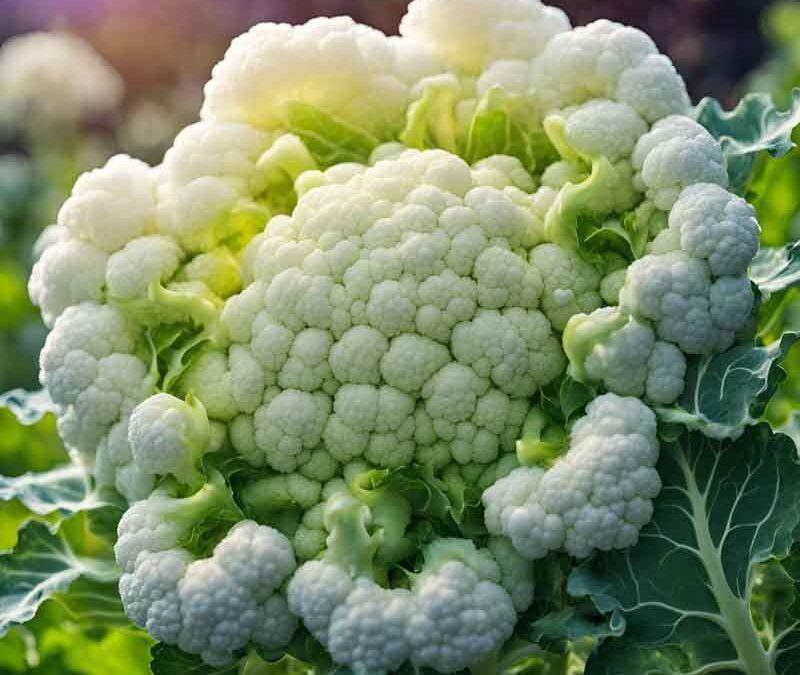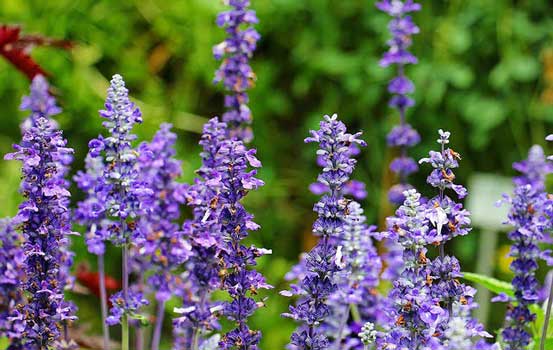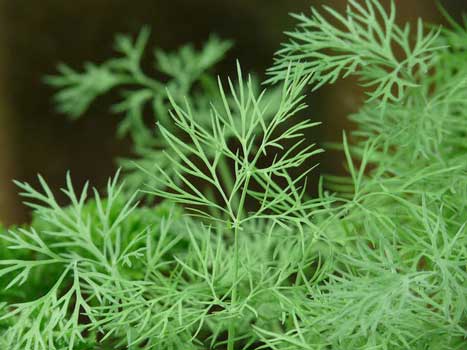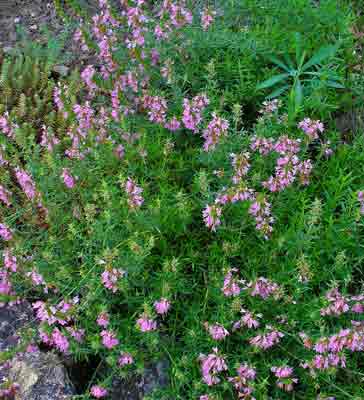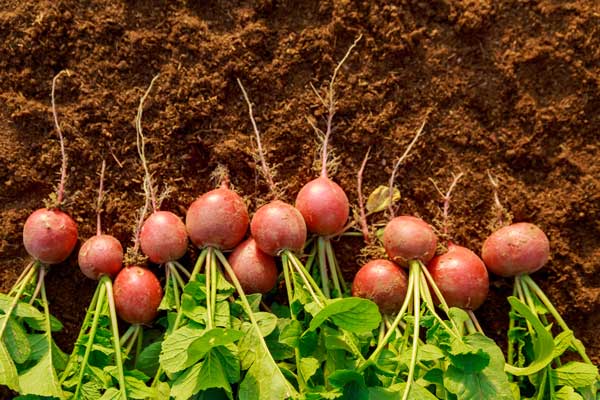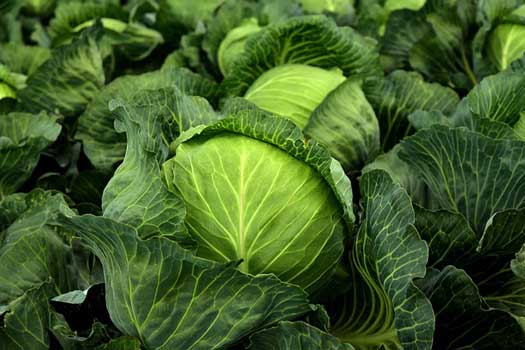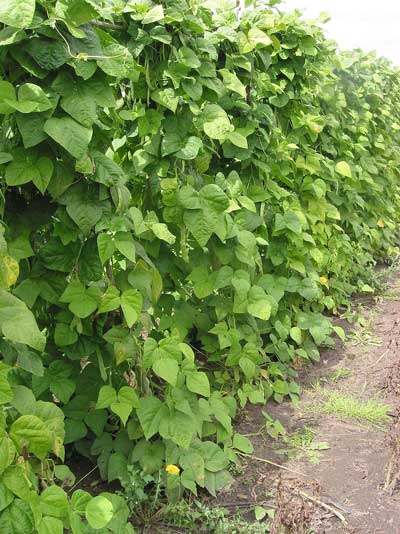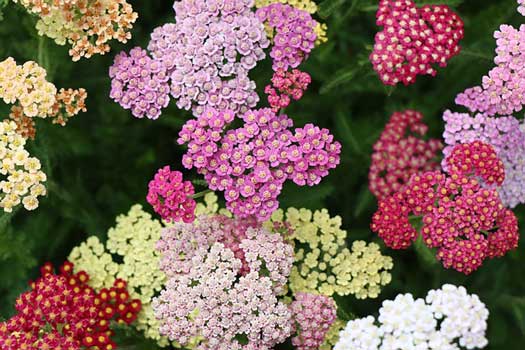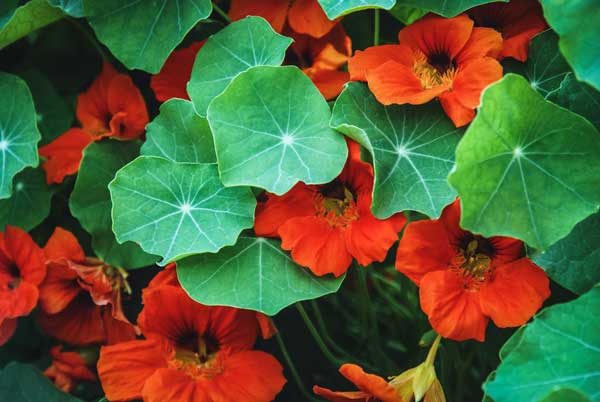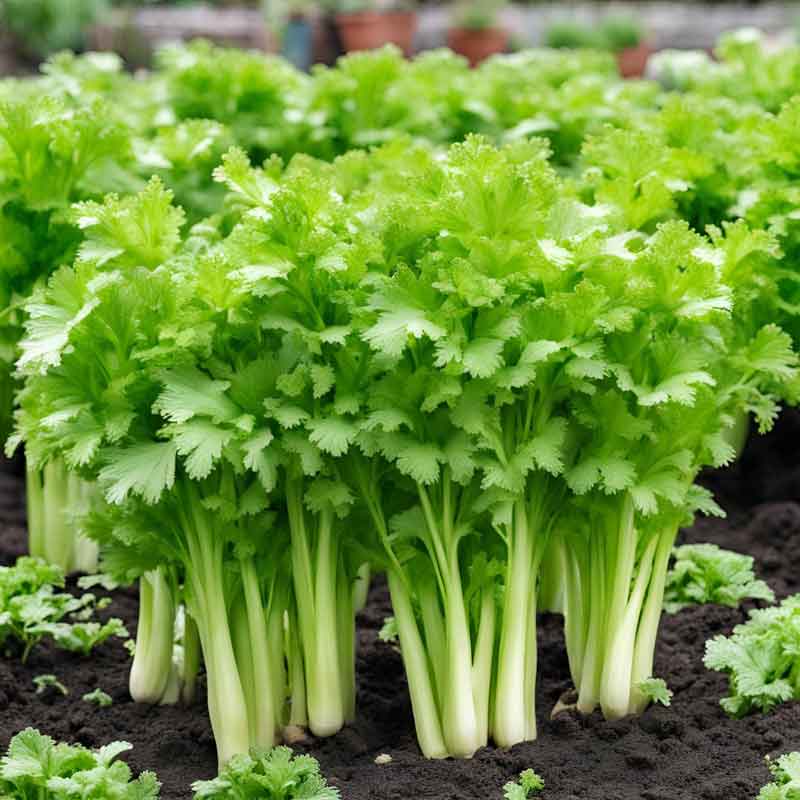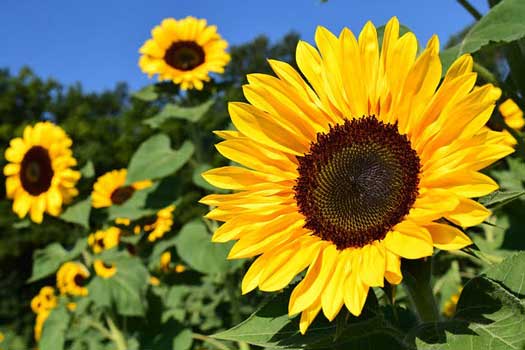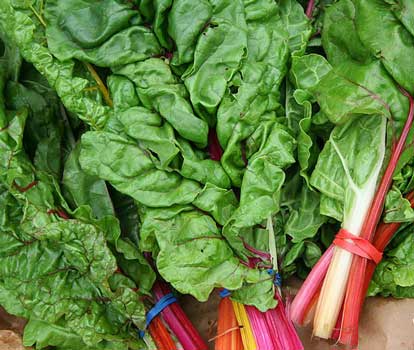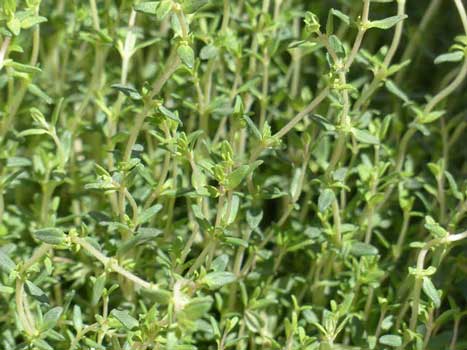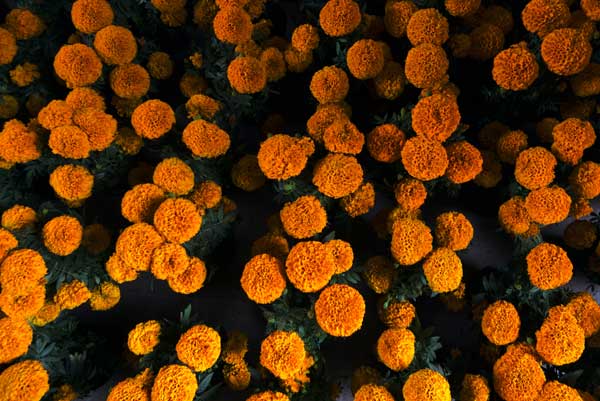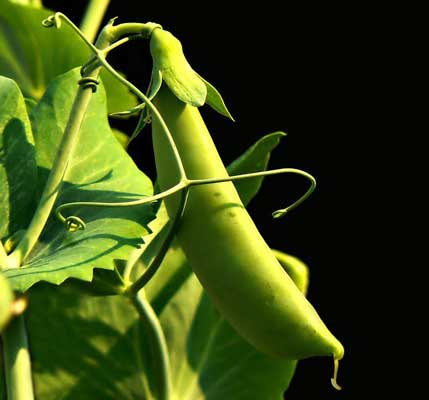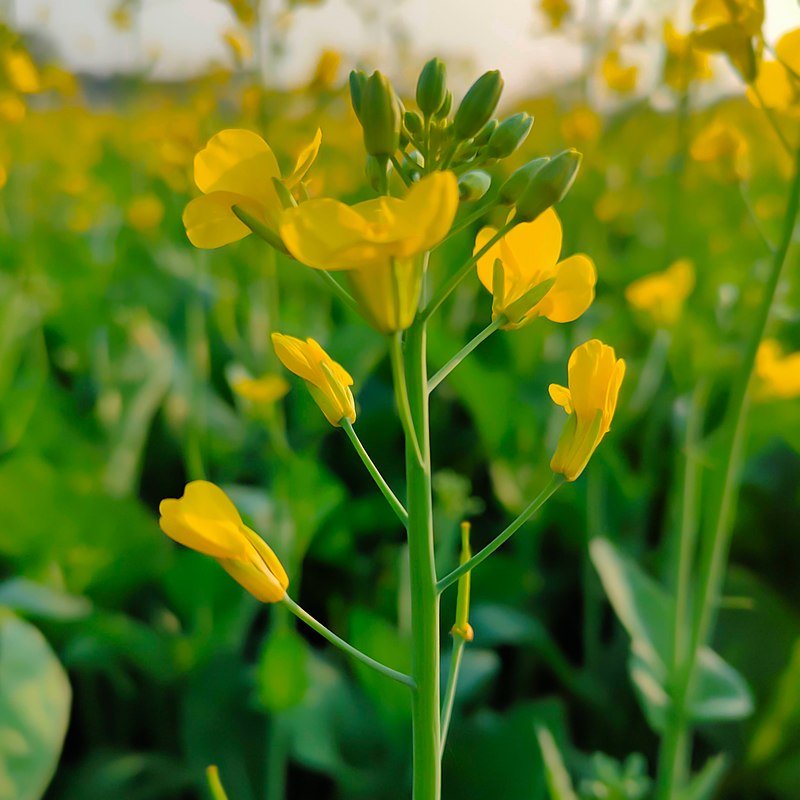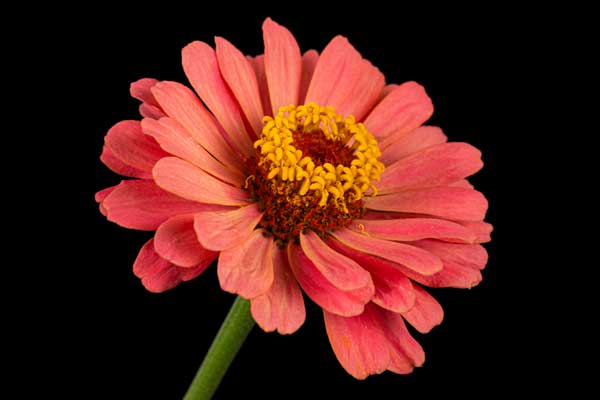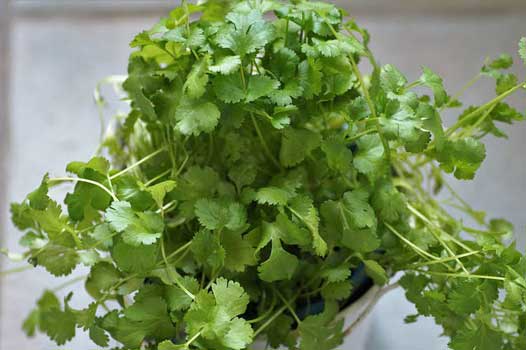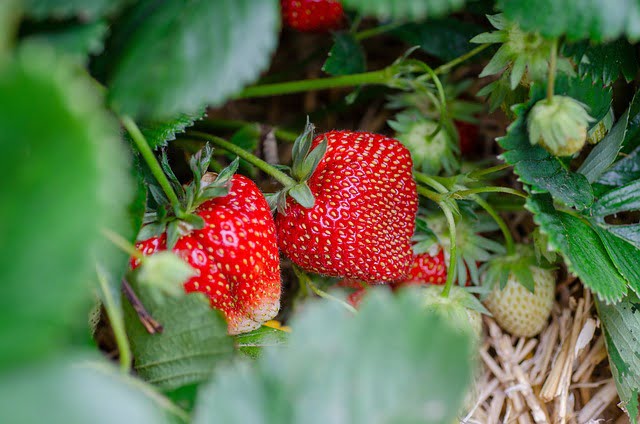Companion planting is a time-tested gardening technique that involves growing different plants together to benefit one another. This method is especially beneficial for cauliflower companion plants. By choosing the right companions, you can improve your cauliflower’s growth, deter pests, and enhance soil health.
The Importance of Companion Planting Cauliflower
Companion planting is essential for cauliflower because it helps create a balanced and healthy garden ecosystem. Cauliflower, like other brassicas, can attract pests and require rich, well-nourished soil. Planting compatible plants alongside cauliflower can address these needs effectively.
First, companion plants can deter pests. For example, aromatic herbs like sage and dill repel common cauliflower pests such as aphids and cabbage worms. This natural pest control reduces the need for chemical pesticides, making your garden more organic and eco-friendly.
Second, some companion plants improve soil health. Beans and legumes, for example, are excellent nitrogen fixers. They enrich the soil with nitrogen, an essential nutrient that cauliflower needs to grow strong and healthy. By improving soil fertility, these plants ensure that cauliflower has access to the nutrients it requires.
Best Companion Plants for Cauliflower and How They Help
Cauliflower thrives when planted alongside certain companion plants. These plants can improve growth, deter pests, and enhance flavor. Let’s explore the best companions for cauliflower and their benefits.
Alliums (Garlic, Onions)
Alliums, such as garlic, onions, and leeks, are fantastic companions for cauliflower. They release sulfur compounds that repel pests like aphids and caterpillars. Additionally, alliums can improve the soil’s health by deterring harmful fungi.
- Benefits: Pest deterrence, improved soil health
- Considerations: Ensure enough spacing to avoid competition for nutrients
Sage
Sage is a fragrant herb that deters cabbage moths and other pests. Its strong aroma confuses pests, keeping your cauliflower safe from damage. Sage also attracts beneficial insects like bees, which help with pollination.
- Benefits: Pest deterrence, attracts beneficial insects
- Considerations: Plant in well-drained soil for best growth
Dill
Dill attracts beneficial insects such as ladybugs and parasitic wasps, which prey on common cauliflower pests. It also enhances the growth of cauliflower by improving soil health with its deep roots.
- Benefits: Attracts beneficial insects, improves soil health
- Considerations: Ensure dill does not overshadow young cauliflower plants
Hyssop
Hyssop is an aromatic herb that repels harmful insects like flea beetles. Its beautiful flowers attract pollinators, contributing to a healthy garden ecosystem.
- Benefits: Pest repellent, attracts pollinators
- Considerations: Needs well-drained soil and full sun
Radishes
Radishes grow quickly and can be harvested before cauliflower matures. They act as a trap crop, attracting pests away from cauliflower. Moreover, radishes improve soil structure, making it easier for cauliflower roots to grow.
- Benefits: Trap crop, improves soil structure
- Considerations: Harvest radishes before they overshadow cauliflower
Beets
Beets are excellent companions because they do not compete heavily for nutrients. They help break up the soil, allowing better water and nutrient absorption for cauliflower.
- Benefits: Soil improvement, minimal nutrient competition
- Considerations: Space plants adequately to prevent crowding
Other Brassicas (Broccoli, Cabbage)
Other brassicas, like broccoli and cabbage, can be good companions. They share similar growing conditions and can help create a microenvironment that supports cauliflower growth.
- Benefits: Similar growing conditions, microenvironment support
- Considerations: Rotate crops to avoid soil depletion
Spinach
Spinach grows quickly and provides ground cover, which helps retain soil moisture and suppress weeds. It does not compete for resources, making it an ideal companion.
- Benefits: Ground cover, moisture retention, weed suppression
- Considerations: Harvest spinach early to give cauliflower space
Beans
Beans are excellent nitrogen fixers, meaning they improve the nitrogen content in the soil. This provides cauliflower with essential nutrients, promoting healthier and faster growth.
- Benefits: Enriches soil with nitrogen, supports healthy growth
- Considerations: Ensure enough space to avoid overshadowing cauliflower
Yarrow
Yarrow attracts beneficial insects and helps improve soil health. Its deep roots pull nutrients up from the soil, benefiting nearby plants like cauliflower.
- Benefits: Attracts beneficial insects, improves soil health
- Considerations: Can spread aggressively; monitor growth
Nasturtium
Nasturtium acts as a trap crop, attracting aphids and other pests away from cauliflower. Its vibrant flowers also attract pollinators, enhancing your garden’s biodiversity.
- Benefits: Trap crop, attracts pollinators
- Considerations: Plant around the edges to manage spread
Celery
Celery repels pests like the white cabbage moth and aphids. It also grows well in the same conditions as cauliflower, making them great garden companions.
- Benefits: Pest repellent, compatible growing conditions
- Considerations: Requires consistent moisture; mulch to retain soil moisture
Potatoes
Potatoes can improve soil structure and help in water retention. They also repel certain pests, providing a protective barrier for cauliflower.
- Benefits: Improved soil structure, pest deterrence
- Considerations: Rotate crops to prevent soil diseases
Rosemary
Rosemary repels a variety of pests with its strong aroma, including cabbage moths and aphids. It also attracts pollinators, enhancing the garden ecosystem.
- Benefits: Pest repellent, attracts pollinators
- Considerations: Requires well-drained soil and full sun
Sunflowers
Sunflowers can act as a physical barrier, protecting cauliflower from harsh winds. They also attract beneficial insects that prey on pests.
- Benefits: Wind protection, attracts beneficial insects
- Considerations: Plant sunflowers on the periphery to avoid shading cauliflower
Swiss Chard
Swiss chard is a great companion because it improves soil health and does not compete for nutrients. Its deep roots help break up the soil, aiding cauliflower root growth.
- Benefits: Soil improvement, minimal nutrient competition
- Considerations: Harvest leaves regularly to ensure space for cauliflower
Thyme
Thyme is an aromatic herb that repels many common pests. Its low-growing nature helps with weed suppression, keeping the soil around cauliflower clear.
- Benefits: Pest repellent, weed suppression
- Considerations: Needs full sun and well-drained soil
Borage
Borage attracts beneficial insects like bees and ladybugs, which help with pollination and pest control. It also improves soil health by adding trace minerals.
- Benefits: Attracts beneficial insects, enriches soil
- Considerations: Can spread quickly; monitor growth
Marigolds
Marigolds are well-known for their pest-repellent properties. They produce chemicals that repel nematodes and other harmful insects, protecting cauliflower from potential damage.
- Benefits: Nematode repellent, attracts beneficial insects
- Considerations: Plant around the garden borders
Legumes
Legumes, like peas and lentils, are excellent nitrogen fixers. They enrich the soil with nitrogen, benefiting cauliflower’s growth and health.
- Benefits: Enriches soil with nitrogen, supports healthy growth
- Considerations: Ensure they don’t overshadow young cauliflower plants
Clover
Clover improves soil fertility by fixing nitrogen and adding organic matter. It also helps with weed suppression and soil erosion control.
- Benefits: Soil fertility improvement, weed suppression
- Considerations: Regularly trim clover to prevent it from becoming invasive
Mustard
Mustard plants can act as bio-fumigants, reducing soil-borne pests and diseases. Their deep roots also help in breaking up compacted soil.
- Benefits: Pest and disease control, soil aeration
- Considerations: Till mustard into the soil as green manure for maximum benefits
Basil
Basil is an aromatic herb that deters many common garden pests, such as aphids, beetles, and whiteflies. Its strong scent masks the smell of cauliflower, confusing pests and reducing infestations. Additionally, basil attracts beneficial insects like bees and ladybugs.
- Benefits: Pest deterrent, attracts beneficial insects
- Considerations: Plant basil in sunny spots with well-drained soil for optimal growth
Zinnias
Zinnias are vibrant flowers that attract a variety of pollinators and beneficial insects. These insects help control pest populations naturally and improve pollination in your garden. Zinnias also add aesthetic value, making your garden more attractive.
- Benefits: Attracts pollinators and beneficial insects, enhances garden beauty
- Considerations: Plant zinnias around the edges of your garden to avoid overshadowing cauliflower
Cilantro
Cilantro repels harmful insects like aphids and spider mites with its strong scent. It also attracts beneficial insects such as hoverflies and parasitoid wasps, which prey on pests. Additionally, cilantro can improve soil health by adding organic matter as it decomposes.
- Benefits: Pest repellent, attracts beneficial insects, improves soil health
- Considerations: Cilantro prefers cool weather, so plant it in spring or fall for best results
Echinacea
Echinacea, also known as coneflower, attracts pollinators and beneficial insects such as bees, butterflies, and parasitic wasps. These insects help control pests and improve the overall health of your garden. Echinacea also has deep roots that help improve soil structure.
- Benefits: Attracts pollinators and beneficial insects, improves soil structure
- Considerations: Ensure echinacea has well-drained soil and full sun exposure
Bad Companion Plants for Cauliflower and Why to Avoid Them
Companion planting is a great way to boost your garden’s health, but some plants just don’t get along. Let’s look at the plants you should avoid planting near cauliflower and why.
Cucumbers
Cucumbers and cauliflower are not the best companions. Cucumbers are heavy feeders, meaning they require a lot of nutrients from the soil. This can lead to competition with cauliflower, which also needs rich soil to thrive.
Benefits of Avoiding This Combination
- Better Nutrient Availability: By keeping cucumbers and cauliflower separate, you ensure each plant gets the nutrients it needs.
- Healthier Growth: Cauliflower can grow stronger and healthier without the competition from nutrient-hungry cucumbers.
Corn
Corn is another plant that doesn’t mix well with cauliflower. Corn can grow very tall and can overshadow cauliflower, blocking the sunlight it needs. Additionally, corn and cauliflower can compete for the same nutrients, making it harder for cauliflower to get what it needs.
Benefits of Avoiding This Combination
- More Sunlight: Planting cauliflower away from corn ensures it gets plenty of sunlight.
- Less Competition: With less competition for nutrients, your cauliflower will grow more robustly.
Nightshades (Tomatoes, Peppers, Eggplants)
Nightshades like tomatoes, peppers, and eggplants can create problems for cauliflower. They are prone to similar diseases and pests, which can spread easily between them. This increases the risk of your cauliflower getting sick.
Benefits of Avoiding This Combination
- Disease Prevention: Keeping nightshades and cauliflower apart helps prevent the spread of common diseases.
- Healthier Plants: Your cauliflower will have a better chance of staying healthy and pest-free.
Strawberries
Strawberries and cauliflower don’t make good neighbors. Strawberries are low-growing plants that can spread out and take up space. They can also attract pests that may harm cauliflower.
Benefits of Avoiding This Combination
- Space Efficiency: By planting strawberries elsewhere, you give cauliflower the space it needs to grow.
- Pest Reduction: Keeping strawberries away helps reduce the risk of pest infestations affecting your cauliflower.
FAQ: Cauliflower Companion Plants
What are good companion plants for cauliflower?
Good companion plants for cauliflower include beans, celery, onions, potatoes, rosemary, sunflowers, Swiss chard, thyme, borage, garlic, marigolds, legumes, clover, and mustard. These plants can help improve soil health, deter pests, and enhance cauliflower growth.
Can you plant cauliflower next to tomatoes?
It is generally not recommended to plant cauliflower next to tomatoes. Tomatoes are part of the nightshade family and can attract pests and diseases that also affect cauliflower, making it a less ideal companion plant.
What grows well with cauliflower?
Plants that grow well with cauliflower include alliums (garlic, onions, leeks), sage, dill, hyssop, radishes, beets, other brassicas, spinach, yarrow, and nasturtium. These companions help in pest control, soil improvement, and overall plant health.
What not to plant with cauliflower?
Avoid planting cauliflower with cucumbers, corn, nightshades (such as tomatoes, peppers, and eggplants), and strawberries. These plants can compete for nutrients, attract similar pests, or create unfavorable growing conditions for cauliflower.
What to plant with cauliflower?
You can plant cauliflower with a variety of vegetables and herbs that offer mutual benefits. Good options include beans, celery, onions, potatoes, rosemary, sunflowers, Swiss chard, thyme, borage, garlic, marigolds, legumes, clover, and mustard.
Can I plant broccoli and cauliflower together?
Yes, you can plant broccoli and cauliflower together. Both are part of the brassica family and share similar growing requirements. However, it’s important to rotate crops to prevent soil depletion and reduce the risk of disease.
Can you plant cabbage and cauliflower together?
Yes, cabbage and cauliflower can be planted together. They are both brassicas and thrive in similar conditions. However, like with broccoli, rotating crops is essential to maintain soil health and prevent disease buildup.
What are the best cauliflower companion plants UK?
In the UK, some of the best companion plants for cauliflower include alliums (garlic, onions), sage, dill, radishes, beets, spinach, nasturtium, and marigolds. These plants help in pest control, soil health, and overall plant growth.
What to plant next to cauliflower?
You can plant beans, celery, onions, potatoes, rosemary, sunflowers, Swiss chard, thyme, borage, garlic, marigolds, legumes, clover, and mustard next to cauliflower. These companions support healthy growth and protect cauliflower from pests.
Why is companion planting important for cauliflower?
Companion planting is important for cauliflower because it helps create a balanced garden ecosystem. Certain companion plants deter pests, improve soil health, and enhance the growing environment, leading to healthier and more productive cauliflower plants.
What to grow with cauliflower?
To improve cauliflower growth, plant companions like beans, celery, onions, potatoes, rosemary, sunflowers, Swiss chard, thyme, borage, garlic, marigolds, legumes, clover, and mustard. These plants help enrich the soil, deter pests, and support healthy growth.
How does companion planting benefit cauliflower?
Companion planting benefits cauliflower by enhancing soil health, deterring pests, and creating a favorable growing environment. Plants like alliums, sage, and marigolds repel harmful insects, while legumes improve soil nitrogen levels, leading to healthier cauliflower plants.
Can you plant cauliflower next to tomatoes?
Generally, it is not recommended to plant cauliflower next to tomatoes. Tomatoes, being part of the nightshade family, can attract pests and diseases that also affect cauliflower. These shared issues make tomatoes a less ideal companion for cauliflower, potentially leading to poor growth and increased pest problems.
Can you plant cauliflower next to cucumbers?
It is not ideal to plant cauliflower next to cucumbers. Cucumbers are heavy feeders, meaning they require a lot of nutrients, which can lead to competition with cauliflower. This competition can result in reduced growth and lower yields for both plants.
What are good Cauliflower Companion Plants Vegetables ?
Several vegetables make excellent companions for cauliflower:
- Beans: Improve soil nitrogen levels.
- Celery: Repels pests like white cabbage moth.
- Onions: Deter pests with their strong smell.
- Potatoes: Improve soil structure and water retention.
- Swiss Chard: Enhances soil health without competing for nutrients.
- Spinach: Grows well alongside cauliflower and improves soil quality.
What are good companion plants for cabbage and cauliflower?
Cabbage and cauliflower share many good companion plants, including:
- Alliums (Garlic, Onions): Repel pests and improve soil health.
- Sage: Repels cabbage moths and other pests.
- Dill: Attracts beneficial insects and deters pests.
- Thyme: Deters pests and attracts beneficial insects.
- Marigolds: Repel nematodes and attract beneficial insects.
- Legumes (Beans, Peas): Fix nitrogen in the soil, enriching it for brassicas.
Can you plant cauliflower and cabbage companion plants together?
Yes, you can plant cauliflower and cabbage together. Both are brassicas and thrive in similar conditions. However, it’s essential to rotate crops to maintain soil health and prevent the buildup of diseases.
Can you plant cauliflower and broccoli companion plants together?
Yes, cauliflower and broccoli can be planted together. They both belong to the brassica family and have similar growing requirements. However, it’s important to practice crop rotation to avoid soil depletion and reduce disease risk.
Cauliflower Companion Plants Conclusion
Companion planting is a smart strategy for growing healthy and productive cauliflower. By carefully selecting the right plants to grow alongside cauliflower, you can create a thriving garden ecosystem that benefits all your crops. Good companion plants for cauliflower include a variety of vegetables and herbs such as beans, celery, onions, potatoes, rosemary, sunflowers, Swiss chard, thyme, borage, garlic, marigolds, legumes, clover, and mustard. These plants help by improving soil health, deterring pests, and enhancing the growth environment.
On the other hand, it’s important to avoid planting cauliflower with certain plants like cucumbers, corn, nightshades (such as tomatoes, peppers, and eggplants), and strawberries. These plants can compete for nutrients, attract similar pests, or create unfavorable growing conditions for cauliflower, leading to poor growth and reduced yields.
Incorporating companion planting into your gardening practices can lead to a more balanced and healthy garden. By leveraging the natural benefits of companion plants, you can reduce the need for chemical pesticides, improve soil fertility, and ensure your cauliflower plants grow strong and healthy. Remember to rotate your crops to maintain soil health and prevent disease buildup, especially when planting brassicas like cauliflower, broccoli, and cabbage together. With these tips in mind, you can enjoy a bountiful harvest and a beautiful, thriving garden.

